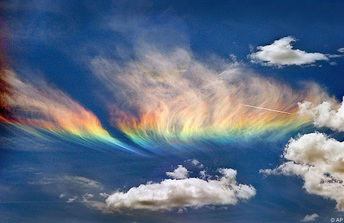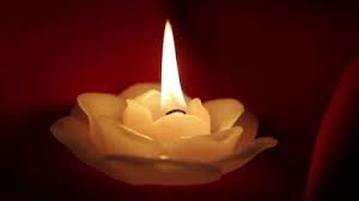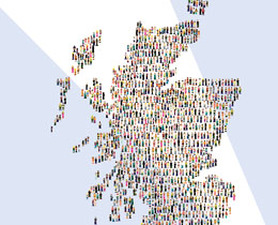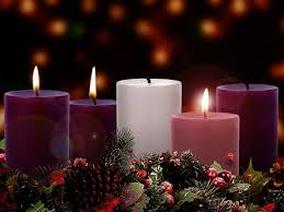
New Year's Day is not a religious festival and the celebrations leading up to it might even be pagan. All religions have their own new year festivals, often preceded by a period of fasting and/or a confession of past sins. Some are associated with Spring like the Baha'i Naw Ruz, others with historical events such as Muharram for the Muslim community commemorating the flight of the Prophet from Mecca to Medina. Others take place later in the year as in the Jewish community when Rosh Hannah is celebrated in the 7th month of the Jewish calendar. it celebrates the creation of the world and humanity's dependence on God and begins ten days of repentance culminating in the Day of Atonement, Yom Kippur. These "New Year" holidays remind us of the common threads to be found in many of the world's religions. They may be observed differently and celebrated at different times of the year but they all express an appreciation for the past, a regret for past sins, a desire for a new beginning and hope for blessings and prosperity in the coming year - all things associated with the secular celebration of welcoming in the New Year.
Of course there's no need to wait for a new year festival to begin again. I was brought up on the dictum 'from beginnings, to beginnings, through beginnings for beginnings have no end'. Each day is a new beginning and offers us immense possibilities. With all beginnings we stand on the threshold of a new world and don't know what might come our way - good and bad. One thing I have learned is that much of what comes our way cannot be controlled. I suppose resolutions and the determination to act differently gives the impression that we are in control of our lives. There are many self-help books that would also give that impression - you make your own happiness, you too can be successful etc. etc. But illness, death, separation, tragedy, war, flooding, exile and all the ills we are well aware of at this time are all realities that we would not choose. They have come to us and we are judged by how we respond to them. Experience teaches us that life is not easy. But life also teaches us that it is these events that plumb in us the depth of our humanity, that all things pass. But patience, courage and hope are needed for some sufferings and agonies do not pass quickly or easily. All we can do is acknowlege them, live with them and work through them, drawing on our own inner strength and the help of God. Sometime religions give us a practice to help us cope, other times the belief that things can change and that new life can come out of suffering and death - which is of course the central belief in Christianity - all of which offer us hope.
In all of this I'm reminded of a poem by the Muslim poet Jalaluddin Rumi
This being human is a guest house.
Every morning a new arrival, A joy, a depression, a meanness,
some momentary awareness comes as an unexpected visitor.
Welcome and entertain them all!
Even if they are a crowd of sorrows, who violently sweep your house empty of its furniture,
still, treat each guest honorably.
He may be clearing you out for some new delight.
The dark thought, the shame, the malice. meet them at the door laughing and invite them in.
Be grateful for whatever comes. because each has been sent as a guide from beyond.
Not easy to live I find and sometimes hard to believe but a wisdom that cannot be denied. And new year with its new beginnings and its offer of possibilities gives us hope that, in the words of a christian hymn, our tears will be turned into dancing.





 RSS Feed
RSS Feed
